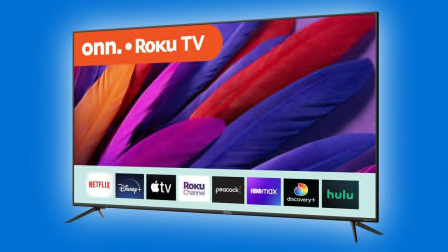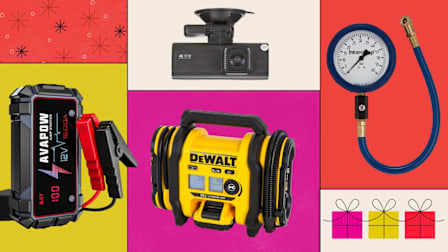Should You Do Your Holiday Shopping Early This Year?
Experts weigh in on the pros and cons of purchasing gifts in advance, taking into account potential pricing volatility ahead. Here are eight factors to consider.

I’m a holiday-gift opportunist, collecting presents like a squirrel gathering nuts. All year long, I keep an eye out for great deals. Needless to say, the more shopping I can accomplish before the official start of the “holiday season,” the happier I am.
This year, more than ever, I feel like my strategy makes sense. Given the talk of tariffs, the possibility of rising prices, and concern about potential product shortages, a shop-ahead plan seems prudent.
1. Keep an Eye on Quality
A deal is only as good as the product itself. That may sound obvious, but it’s easy to get caught up in the excitement of mega sales and lose focus. CR maintains an active list of the best deals on products we’ve evaluated. And, naturally, it makes sense to refer to our ratings, where you can easily see details on (sometimes buried) information, such as the length of a product’s warranty. Case in point: This Vitamix blender, which sits near the top of our blender ratings, comes with a 10-year warranty, whereas this Dash blender is covered for just one year (and the brand has a CR predicted reliability score of only 36 out of 100).
2. Timing Matters
“We can’t predict that things are going to be more expensive toward the end of the year, but there is a chance that will happen,” says Samantha Gordon, Consumer Reports’ deals editor. Pricing in big-name tech and kitchen products could be impacted by potential tariffs, which could also hit laptops, tablets, smartwatches, and clothing, among other categories.
However, for certain things—such as TVs—it makes sense to wait. “TVs tend to have their best discounts around Black Friday—we’ve seen that year after year,” Gordon says.
3. Focus Your Search
The buzz around big sales can fuel FOMO, prompting people to purchase gifts that might not be ideal. “Don’t get caught up in the excitement of the transaction, where you start seeing deals as ends in themselves,” says Nathan Novemsky, PhD, a professor of marketing and psychology at the Yale School of Management who specializes in consumer decision-making. “It is far better to decide what you want to buy and then shop for the best price, rather than look at good deals and decide which deal to take.” A running gift list on your phone (and a list of items you need, too) can help keep you focused.
4. Don’t Take Markdowns at Face Value
“Products on Amazon that are typically offered throughout the year at a discounted price may return to the manufacturer’s standard price prior to sales events, creating the illusion of a more substantial discount,” says Consumer Reports’ market analyst Stacey Canova-Turner.
In other words, you might see a sale price that isn’t a discount at all. While price-tracking sites like CamelCamelCamel and Keepa offer historical data on prices, they’re not always reliable, says Gordon. Your best bet? Check a trusted source. CR staffers monitor prices and keep a running list of the day’s best deals, so you can get insights into what items typically cost—and how good the deals actually are.
5. Look Around
Major players like Amazon, Best Buy, Target, and Walmart may have the best-known sales (like Prime Day, in July, which sparks competing sales), but they’re not the only games in town. Check out large stores like JCPenney and Macy’s, along with electronics outlets such as B&H Photo and P.C. Richard & Son, says Gordon. “They may not be advertising giant sales the way some major retailers do, but they may still have competitive pricing."
6. Remember Return Windows
Snagging a holiday present early means that your recipient may not be able to return or exchange it in December, so you want to be confident it will be a winner. If you’re buying something you’re not sure about—say, clothing—you may want to wait until Black Friday or Cyber Monday so that you can give your gift within the return window.
Shopping early also eats up warranty time. If you gift someone, say, a coffee maker with a one-year warranty, keep in mind that several months of that backup will have slipped away by the time they open the box.
7. Watch the Consumer Reports Price Tracker
To help you understand what’s draining your budget, including the impact of tariffs, our reporters have been monitoring prices on 16 popular products since mid-May with Consumer Reports Price Tracker. We’ve seen, for example, the vacuum cleaner, microwave, and washing machine we’re tracking each jump in price by $50 to $60.
How does this play into gift shopping? Well, despite some hikes, consumers have been able to find deals, in part because manufacturers rushed to ship goods to the U.S. during the pause in tariffs. For ongoing insights into pricing trends, bookmark the Price Tracker.
8. More Sales Are (Always) Coming
If you had hoped to avoid holiday procrastination by shopping summer and early fall sales, but then you procrastinate on doing that, don’t beat yourself up. “The deals we see [in October] are overall not quite as good as you see for Prime Day [in July],” says Gordon. “But Black Friday is still ahead. Any time before that final two-week stretch in December is good to start your holiday shopping.”
And if you decide to go all out and get ahead on wrapping presents, Novemsky offers a data-based insight: “I’ve done some research that suggests that fancy wrapping may not pay off—it raises expectations, and then people open up [their gift] and realize, it’s just okay.” For anyone like me who’s always felt guilty about taking the lazy way out, permission from an expert to not wrap presents might be the best (well in advance) holiday gift of all.




